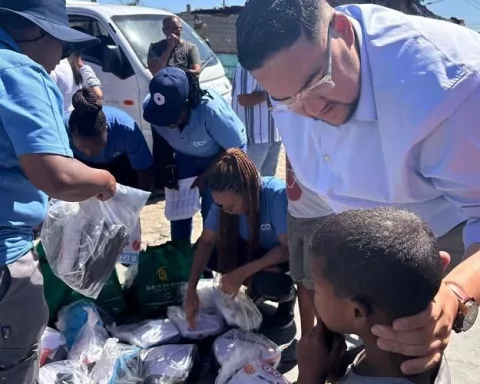The Arab Organisation for Human Rights (AOHR) appeals for international assistance to provide aid to 360 sub-Saharan migrants who were abandoned by Tunisian police in the desert near the Libyan border on July 17, 2023. Libyan authorities rescued the migrants, who experienced dire humanitarian conditions before being found by Libyan border guards.
Libyan Authorities Call for International Aid
The AOHR’s Libya chapter expressed their gratitude for the migrants’ reception in Libya and emphasized the urgent need for humanitarian and medical aid. The migrants include women and children, and the AOHR called on Libyan authorities to grant permission for relevant organizations such as the UN High Commissioner for Refugees and the International Organization for Migration (IOM) to meet the migrants and assist with legal procedures.
IOM Provides Emergency Humanitarian Assistance
The IOM in Libya announced on Monday that they had already provided “emergency humanitarian assistance to migrants rescued at the border with Tunisia.” They reported distributing hygiene kits, clothes, and mattresses to 191 migrants, who were also screened for medical, protection, and psychosocial assistance.
Disturbing Conditions for Migrants
Libya’s interior ministry documented the expulsions by Tunisian authorities toward the Libyan border and shared a video on Facebook showcasing the migrants recounting their experiences. Libyan border patrols discovered dozens of migrants in an uninhabited area near Al-Assah, around 15 kilometers inside Libyan territory and 150 kilometers west of Tripoli. The exhausted and dehydrated migrants were found without water, food, or shelter, using shrubs to protect themselves from the scorching summer heat exceeding 40 degrees Celsius (104 Fahrenheit).
Cause of the Crisis
Hundreds of migrants from sub-Saharan African countries were forcibly taken to desert and hostile areas bordering Libya and Algeria following racial unrest in early July in Sfax, Tunisia’s second-largest city. The unrest began after a Tunisian man was killed in a conflict between locals and migrants on July 3. The port of Sfax serves as a departure point for numerous migrants from impoverished and violence-stricken countries seeking a better life in Europe by attempting a dangerous Mediterranean crossing.
Response to the Crisis
In response to the crisis, the Tunisian Red Crescent provided shelter to over 630 migrants who had been taken to the militarized border zone of Ras Jedir, north of Al-Assah, on the Mediterranean coast after July 3. However, despite the mistreatment of Libyan migrants, Tunisia and the European Union recently signed a memorandum of understanding for a “strategic and comprehensive partnership,” which includes a €10 million ($11 million) financial assistance package to address irregular migration.
Critics of the Agreement
Amnesty International’s Eve Geddie criticized the agreement as “ill-judged” and claimed it would result in a dangerous expansion of already failed migration policies. Geddie, the rights group’s advocacy director in Brussels, argued that the agreement signaled the European Union’s acceptance of increasingly repressive behavior by Tunisia’s president and government, making the EU complicit in the suffering that will inevitably follow.












